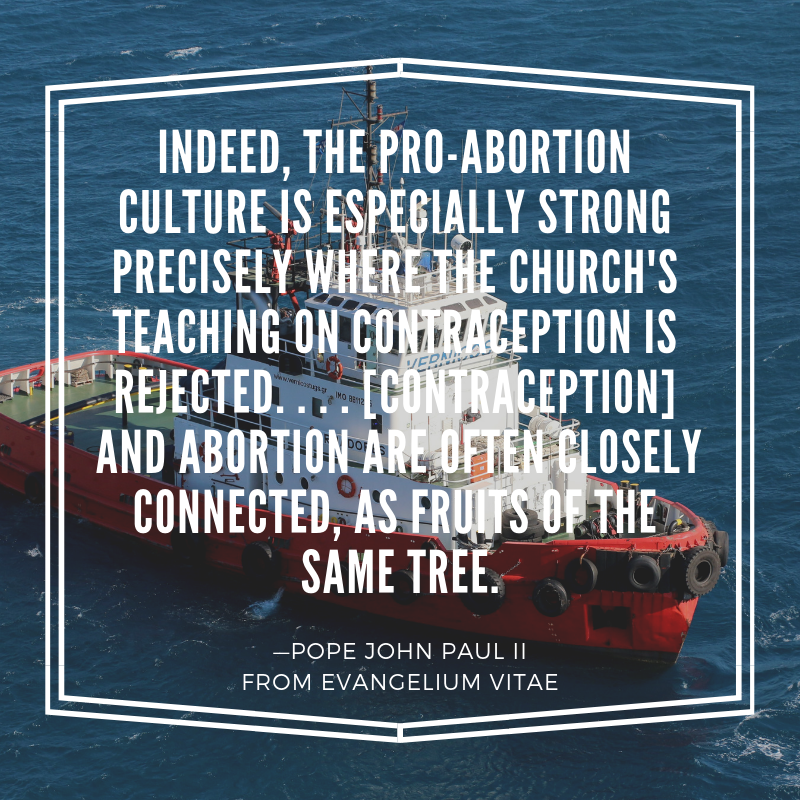|
On January 22, 1973 the Supreme Court ruled that abortion should be legal in the United States. Abortion remains a hot topic in this country and in many countries around the world. Although both sides have radicals who seem to only care about promoting their cause, I find that the majority of people genuinely seek the best solution for society. The pro-choice side argues that women shouldn't live with the consequences of an unplanned pregnancy, especially if she didn't consent to sex in the first place. The pro-life side argues that the embryo is a living person with the right to life, regardless of how conception occurred. Most pro-choice supporters promote "safe, legal and rare" abortions. New York Times columnist Ross Douthat wrote a beautifully unbiased article explaining how both "sides" share the same goal: decreased abortions, but with very different approaches. He ends by critiquing the effectiveness of both strategies. It is interesting to note that in May 2018 the "sides" were exactly equal: 48% of Americans identifying as pro-life and 48% identifying as pro-choice (Gallup Poll). Is access to contraception the problem?Douthat noted that only 12% of women and only 13% of teens reported lack of access to contraceptive as the reason for their unwanted pregnancy. The Guttmacher Institute surveyed women who chose abortion and found that 54% of women used contraception during the month they conceived. Those who didn't use contraception mostly chose not to due to "perceived low risk of pregnancy" and/or concerns about contraception. Most contracepting couples whose pregnancies ended in induced abortion used the condom during the conception month (28%), followed by the pill (14%). Because more than half of women who choose abortions do so because of failed contraceptive use, and most of those who didn't use contraception did so by choice rather than lack of availability, access to contraception does not appear like an appropriate answer to decreasing abortions. Is "Emergency Contraception" the solution?At face value, emergency contraception and any contraception that prevents implantation (IUDs and all hormonal contraception) seem like a good solution. They aren't considered to cause abortions because the American College of Obstetricians and Gynecologists (ACOG) tried to redefine the beginning of life to implantation in 1965. According to the American College of Pediatricians (ACPEDS), medical textbooks continue to define the beginning of life as fertilization. Life begins at fertilization because the two DNA fuse to create a cell with a unique set of DNA that has never been seen before and will never be seen again. At that moment, the cell is living because it is a cell that grows, reproduces and is organized, and it is a being because its DNA is distinct from its mother. In fact, the likelihood that the same parents would give the exact same chromosomes to another child is 1.4x10-14, (0.00000000000014), which doesn't even include the variety caused by crossing over during meiosis! Are abstinence-only programs the answer?Opponents of abstinence-only programs say abstinence-only is like telling teens they can't drive a car because they might have an accident. Proponents of abstinence-only programs say you teach teens to say no to drugs and alcohol, so why not teach them to say no to sex? I believe both comprehensive sex education and abstinence-only programs fail because they both teach teens to fear pregnancy. Instead of teaching teens that pregnancy means something went wrong, we should teach teens that pregnancy means something went right! It is absolutely incredible everything that must come into place at the right time for pregnancy to occur. Sex is at the base of Maslow's hierarchy of needs because it is required for species survival, not individual survival. Indeed, some psychologist put "reproduction" instead of sex at the base. If sex were a basic individual need like food, water and shelter, then how do you explain those who voluntarily take a vow of celibacy and live rich, full-filling lives, often into their 90's? Unfortunately, not all live up to their vow of celibacy, but Sister Julie, OSF wrote a beautiful article about what it means to live a celibate life. If you are concerned with celibacy being the cause of sexual abuse, please please read her response to Charles Lumia in the comments and the priest Pierre Farrugia's earlier (further down) comment for a celibate man's perspective. Fear of fertility isn't the only problem with these programs. Abstinence programs tend to tout virginity, often causing great distress for those who have suffered sexual abuse or a feeling of hopelessness and unworthiness for those who are already sexually active. Upholding virginity as an ultimate good can ruin the intimacy and bonding sex provides for brides who pride themselves in their virginity and fear consummating their marriage. Finally, I believe the biggest reason abstinence-based programs are ineffective is because they don't allow young adults to make informed decisions. If sex education programs don't openly and accurately discuss the pros and cons, then even the most well-meaning program will come off as lecturing and indoctrinating and will be quickly dismissed. Are comprehensive sex education programs the answer?Comprehensive programs seem more open because they give options. I really appreciate when programs explain how the different options work and are honest about each option's effectiveness and side effects. Most programs fall into the problem of completely ignoring the side effects and many fliers only present the method effectiveness, not the actual use effectiveness. These programs sometimes ignore the emotional side effects of engaging in intercourse too early and its effect on the relationship. This could have the unintended side effect of increasing the pressure to "take their relationship to the next level." I really appreciate that these talks often include informed consent and stress the importance of saying "no" if you are uncomfortable. But when they talk about abstinence, they oftentimes say that it takes self-control and cooperation by both partners (verywellhealth). Instead of pointing out how disrespectful, selfish and unloving it is to pressure your partner into having sex, they say abstinence is difficult unless both partners agree. Even if one partner feels they are ready for sex, that partner should practice self-control to show love to the other partner until both partners agree they are ready. This includes respecting the physical, emotional, moral and self-care reasons for choosing abstinence. Although comprehensive programs recognize that abstinence is the only guaranteed way to not getting an STD or become pregnant, they rarely help teens develop a plan for remaining abstinent. Instead, they focus on "back-up plans." Verywellhealth has an article about "Tips on Maintaining Sexual Abstinence," which I really appreciate. However, their first paragraph states, "abstinence will only work if both partners agree to it." Maybe it's just me, but if both partners don't agree, then a "lack of abstinence" is rape and rape has no place in a healthy relationship. Fertility AppreciationWhen teaching Fertility Appreciation, we focus on educating men and women about fertility. When couples understand their bodies, they can make informed decisions regarding their family planning. Fertility Appreciation emphasizes respecting your body and your partner's body. We work with those who desire abstinence to identify situations and behaviors that make abstinence difficult for them. We then work with the couple to develop a plan for making and keeping appropriate boundaries based on their individual triggers. SPICE shows couples the need for balance between the spiritual, physical, intellectual, communicative and emotional bonding in a relationship. Sexual activity early on in a relationship often takes away from the development of the other aspects of the relationship (livescience). We work with couples for areas they would like to improve to obtain a well-balanced relationship, which doubles as giving them alternatives to sex when choosing abstinence. For non-married couples, we may be the only person encouraging them to choose chastity. Our goal is never to break a couple up, but sometimes we end up empowering people to break up with a partner who disrespects them by continuing to pressure them to go further than they want to go. Each session we talk about receptiveness to unintended pregnancy so we can direct clients to services that provide options should pregnancy occur. Unfortunately, no effectiveness studies on Fertility Appreciation for reducing abortions exist; however, I've heard many anecdotal stories sharing how Practitioners can empower couples to wait until marriage through encouraging them at each meeting to wait until the next meeting. These short-term goals help couples develop respect for the whole person. This is obviously the couple's choice, and although difficult, most couples express appreciation for the encouragement to develop their relationship during times of abstinence. Even those who promote contraceptive use admit abstinence is the best choice for physical well-being and avoiding unintended pregnancy. Douthat criticized chastity-based programs as needing "religious intensity" to succeed. Linda Lowen wrote a lovely article for ThoughtCo about the benefits of abstinence, none of which require a religious belief. I also wrote my Advanced Research Paper based on the scientific, instead of religious, benefits of chastity. Someday, I hope to write a blog summarizing my paper in a more reader-friendly format than a research paper! Fertility Appreciation isn't the answerFertility Appreciation can help, but the most influential factor in sexual behavior is parental guidance. Attending a sex education talk with your child, whether abstinence-based, comprehensive or Fertility Appreciation, can provide a wonderful gateway for you to talk with your tween/teen about which method you support and why. As stated earlier, lecturing is ineffective, but talking openly about the pros and cons of different options and helping your teen to develop a plan based on their convictions will help (unfortunately not guarantee) your teen make decisions that respects themselves and others. For more information on the pros and cons of different methods, see my Not Your Grandma's Family Planning blog. Final NoteThis article is about ways of reducing abortion, not a debate about the legality/morality of abortion. I may do that in a future article, but please keep your comments respectful and relevant or they will be deleted. I love hearing other's logical, evidence-based ideas, not emotional rants. Thank you!
1 Comment
|
Are you looking for a specific blog? Find it here!
AuthorStephanie started her Creighton Model journey in early 2014 and entered the program to instruct others in 2017. She enjoys equally adventuring in the great outdoors with family and friends and reading a good book with a cup of tea. For more details, visit her About Me page. Archives
March 2021
Categories
All
|


 RSS Feed
RSS Feed
